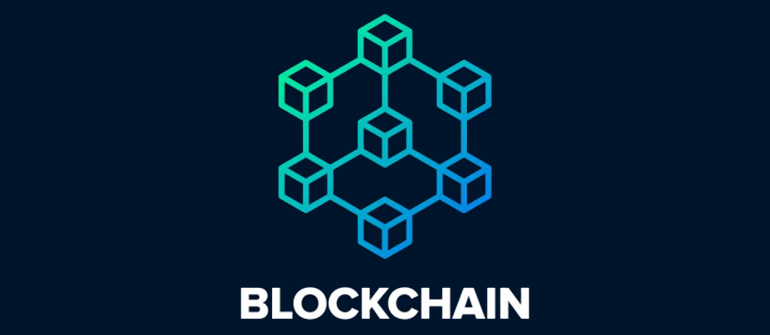
Introduction
Imagine a world where transactions are secure, transparent, and decentralized. No more intermediaries, no more data breaches, and no more room for fraud. This is the promise of blockchain technology, a revolutionary innovation that is poised to transform countless industries.
From finance to healthcare, supply chain to energy, blockchain is disrupting traditional systems and creating new opportunities for efficiency, trust, and innovation. In this blog post, we'll delve into the fascinating world of blockchain and explore how this groundbreaking technology is reshaping the landscape of various sectors.
What is Blockchain Technology?
At its core, blockchain is a decentralized and immutable ledger that records transactions across multiple computers.
Here's a simple analogy: Imagine a spreadsheet shared among a group of people. Each time a new entry is made, it's added to the end of the sheet, and every participant receives an updated copy. This ensures that everyone has the same version of the truth. Blockchain operates similarly, but with enhanced security features:
- Decentralization: No single entity controls the network. Transactions are verified and recorded by multiple participants, making it highly resistant to censorship and manipulation.
- Immutability: Once a transaction is recorded on the blockchain, it cannot be altered or deleted. This ensures data integrity and transparency.
- Transparency: All transactions are publicly visible on the blockchain, promoting trust and accountability.
- Security: Cryptographic techniques are used to secure transactions and protect data from unauthorized access.
Key Industries Being Transformed by Blockchain
Blockchain's impact is far-reaching, extending beyond the realm of cryptocurrencies. Let's explore how this technology is revolutionizing several key industries:
1. Finance:
- Decentralized Finance (DeFi): Blockchain is empowering individuals to access financial services without intermediaries like banks. DeFi platforms offer a wide range of services, including lending, borrowing, trading, and earning interest on crypto assets.
- Cross-border Payments: Blockchain can streamline international payments by reducing transaction times and costs.
- Supply Chain Finance: Blockchain can enhance transparency and efficiency in supply chains by tracking the movement of goods and ensuring the authenticity of products.
2. Healthcare:
- Secure Data Sharing: Blockchain can facilitate secure and private sharing of patient data among healthcare providers, researchers, and patients themselves.
- Supply Chain Management: Blockchain can help track the movement of pharmaceuticals, ensuring their authenticity and safety.
- Clinical Trials: Blockchain can streamline the recruitment and management of participants in clinical trials, ensuring data integrity and accelerating research.
3. Supply Chain:
- Transparency and Traceability: Blockchain can provide end-to-end visibility into the supply chain, allowing businesses to track the origin and journey of products.
- Counterfeit Reduction: By recording the history of each product on the blockchain, businesses can combat counterfeiting and ensure the authenticity of goods.
- Improved Efficiency: Blockchain can streamline supply chain operations by automating processes and reducing paperwork.
4. Energy:
- Renewable Energy Trading: Blockchain can facilitate peer-to-peer trading of renewable energy, empowering consumers to buy and sell energy directly from renewable energy producers.
- Smart Grid Integration: Blockchain can enable the secure and efficient integration of renewable energy sources into the grid.
- Energy Efficiency: Blockchain can incentivize energy conservation by rewarding consumers for reducing their energy consumption.
5. Real Estate:
- Smart Contracts: Blockchain can automate and streamline real estate transactions, such as property ownership transfers and rent payments.
- Fractional Ownership: Blockchain can enable fractional ownership of real estate, making it more accessible to a wider range of investors.
- Increased Transparency: Blockchain can enhance transparency in real estate transactions by providing an immutable record of ownership and property history.
6. Government:
- Secure Voting Systems: Blockchain can enhance the security and transparency of elections by providing an immutable and auditable record of votes.
- Identity Management: Blockchain can be used to create secure and tamper-proof digital identities for citizens.
- Land Registry: Blockchain can streamline land registration processes, reducing fraud and improving efficiency.
The Future of Blockchain
The potential applications of blockchain technology are vast and continue to evolve rapidly. As the technology matures and becomes more widely adopted, we can expect to see even more transformative innovations across various sectors.
Key Takeaways:
- Blockchain is a revolutionary technology with the potential to transform numerous industries.
- Its key features, including decentralization, immutability, and transparency, make it a powerful tool for enhancing security, efficiency, and trust.
- Blockchain is already being used in a variety of applications, from finance and healthcare to supply chain and energy.
- As the technology continues to evolve, we can expect to see even more innovative and impactful applications in the years to come.
Call to Action:
Are you ready to embrace the blockchain revolution? Start exploring the potential applications of this transformative technology within your industry. Stay informed about the latest developments in blockchain and consider how you can leverage this technology to gain a competitive advantage.
